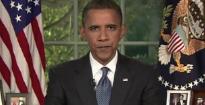Obama Considering Corporate Tax Reform
 The New York Times reports:
The New York Times reports:
WASHINGTON — President Obama went to a busy window-manufacturing plant near here on Friday to promote his economic policies and his new team of advisers as the monthly jobs report reflected only modest employment growth.
“We will not rest until we have fully recovered from this recession, ” the president told workers.
Only hours earlier, the chairman of the Federal Reserve told Congress that while he expected the economy to be “moderately stronger” this year, it would be several years before the jobless rate fell to more normal levels.
That suggests that Mr. Obama is likely to face relatively high unemployment rates for the rest of his term. In responding, the president and his economic advisers will focus on getting the most bang for the buck from existing stimulus measures. New initiatives will tend not to carry a big price tag that adds to the growing national debt, officials say.
For example, aides say, Mr. Obama is exploring whether to seek an overhaul of the corporate tax system by closing myriad tax breaks and using the savings to cut business taxes. That could spur investment and jobs.
After two years of responding to the economic crisis he inherited, Mr. Obama starts the second half of his term managing the slow recovery and building on what he calls a “foundation” for growth. In his view, this includes the two-year stimulus package with its increases for education, research and work-training programs; stronger financial industry regulations; the overhaul of the health care system; and, most recently, the tax cuts that Mr. Obama and Republican leaders agreed to last month.
Yet Mr. Obama will have to defend his foundation even as he seeks to solidify it: Newly empowered Republican lawmakers have taken office this week with an economic agenda that calls for tearing down the stimulus spending initiatives, the health care law and the financial regulations, as well as any new administration regulations.
Last month’s enactment of the bipartisan package of business and individual tax cuts, which few had expected before the lame-duck Congress met, helps explain the relative scarcity of new administration ideas, officials say.
“We accomplished what were our main ideas for bipartisan agreement going forward,” said one official, who spoke on the condition of anonymity.

